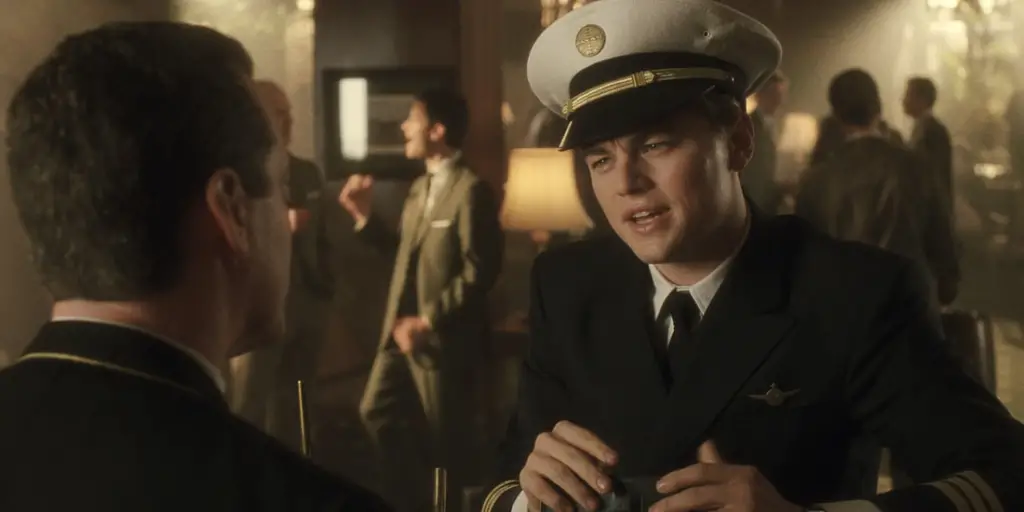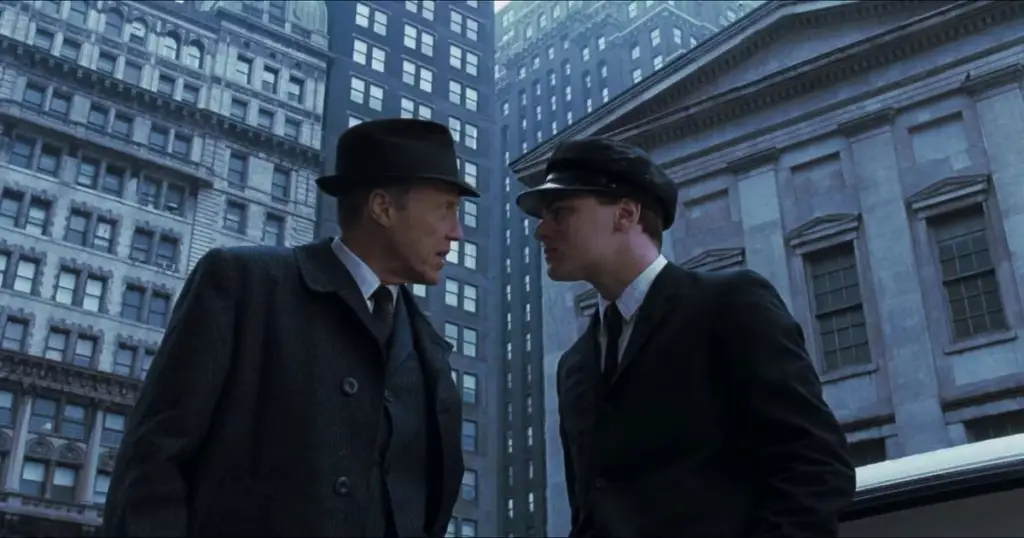Table of Contents
Introduction: Understanding the Fascination with Deception
In the realm of cinema, few stories capture our imagination quite like Catch Me If You Can. This film not only entertains but also invites us to delve deep into the complex web of human behavior. The narrative, based on the life of Frank Abagnale, explores the intricacies of deception and the various psychological factors that drive individuals to live a life of lies.
The allure of deception is potent; it raises questions about identity, morality, and the inherent need for connection. As we dissect the film, we will uncover the layers that make Catch Me If You Can a fascinating study in psychology and philosophy. From understanding Frank Abagnale’s mind to reflecting on broader existential themes, this exploration will provide a well-rounded perspective on the film.
Join us as we unravel these themes and offer insights into what makes Catch Me If You Can not just a story about conning but a profound commentary on the nature of truth and self.

The Psychology of Deception: Understanding Frank Abagnale’s Mind
The Making of a Con Artist
At the heart of Catch Me If You Can lies the enigmatic character of Frank Abagnale. His journey into deception isn’t merely a tale of criminality; it’s an exploration of psychological motivations and familial influences that shape his identity. Abagnale’s early life was marked by instability, with his parents’ tumultuous relationship contributing to a sense of abandonment. This emotional turmoil may have implanted a profound need for validation and control in his psyche.
Driven by a desire to escape his reality, Frank began to craft elaborate personas. He transformed from a disenchanted teenager into a charismatic con artist, seamlessly impersonating professionals ranging from a Pan Am pilot to a doctor. The allure of deception provided him not just financial gain but also an escape from his troubled childhood. The psychology behind this transformation reveals how early experiences can lead individuals to adopt false identities as a coping mechanism.
The Thrill of the Con
Frank’s intelligence and charm played integral roles in his successes. The thrill of deception offered a dopamine rush that reinforced his behavior. Each successful con made him feel invincible, showcasing the psychological concept known as “risk-taking behavior.” Engaging in deception can often result in an adrenaline high, creating a cycle where the reward outweighs the potential consequences.
Moreover, Frank’s ability to manipulate social interactions speaks to a deeper understanding of human psychology. He exploited the trust people placed in him, a reflection of his awareness that humans often overlook inconsistencies when they are faced with confidence and charisma. This understanding allowed him to navigate through various environments, underlining the importance of social intelligence in the realm of deception.
The Duality of Identity
The theme of duality permeates Frank’s life, emphasizing the internal conflict between his true self and the personas he created. As he donned various identities, he wrestled with the dichotomy of being both a victim of his past and a perpetrator of deception. This psychological tension is emblematic of the human condition—a profound struggle between authenticity and the masks we wear in society.
In Catch Me If You Can, we witness not just a narrative of crime but a deeper commentary on identity and existentialism. Frank’s journey invites viewers to consider the psychological consequences of living a lie, as well as the emotional toll it exacts over time. His eventual capture becomes a moment of reckoning, forcing him to confront the fragments of his fractured identity. This struggle for self-understanding resonates with audiences, making Frank Abagnale a compelling figure in the exploration of the psychology of deception.

The Philosophy of Identity: Who Are We When We Pretend?
The Nature of Identity
In Catch Me If You Can, the exploration of identity raises profound philosophical questions about authenticity and the self. Frank Abagnale embodies the idea that identity can be fluid and constructed. When examining his numerous personas, we are compelled to ask: What does it mean to be genuine? Is identity a fixed trait, or is it something we shape through our choices and experiences?
Philosophers like Jean-Paul Sartre have posited that existence precedes essence, suggesting that individuals are not born with a predetermined identity. Instead, identity is forged through actions and decisions. Frank’s ability to redefine himself repeatedly challenges traditional notions of selfhood. Each alias he adopts isn’t merely a disguise; it serves as a mask that reflects his struggles and desires.
The Masks We Wear
The concept of wearing masks is a central theme in the movie, illustrating the roles we play in different contexts. Frank’s personas allow him to navigate through life while avoiding the vulnerability of his true self. This raises the question of how many masks we wear in our own lives. In a world saturated with social expectations, authenticity can feel like a luxury few can afford.
Philosophically, this duality prompts introspection about our motivations for pretending. Are we, like Frank, escaping from pain and disappointment? Or are we crafting a version of ourselves that fulfills societal expectations? The tension between our authentic self and the roles we adopt becomes a profound invitation to reflect on the complexities of identity.
Consequences of Deception
While the ability to deceive can offer temporary advantages, the philosophy of identity also brings forth the potential psychological ramifications. Frank’s journey illustrates that pretending can lead to a disconnection from oneself. Losing sight of who we are amidst the personas we adopt can foster feelings of isolation and anxiety.
This philosophical exploration invites discussions about the ethics of deception, particularly when it pertains to personal identity. Is it justifiable to create false identities as a means of coping with life’s disappointments? Or does this behavior ultimately detract from our understanding of ourselves and others? Frank’s experience serves as a cautionary tale, illuminating the darker side of identity play and the existential threats it poses.
As we consider these themes, Catch Me If You Can encourages viewers to engage deeply with their understanding of identity. It challenges us to reflect on our own lives, the roles we play, and the potential consequences of living in pretense.

Ending of Catch Me If You Can Explained
The Final Confrontation
As Catch Me If You Can reaches its climax, Frank Abagnale, played brilliantly by Leonardo DiCaprio, finds himself cornered after an extensive cat-and-mouse chase with FBI agent Carl Hanratty, portrayed by Tom Hanks. The film builds to a tension-filled finale, culminating in Frank’s arrest in a French airport. This moment signifies not just a physical capture but also the culmination of his internal struggle between his fabricated identities and his true self.
The arrest serves as a poignant reflection of Frank’s journey. Up until this point, he has been living under the guise of various personas, evading capture while enjoying the thrill of deception. However, the moment he is apprehended, the weight of his choices begins to surface. The film expertly illustrates that the high stakes of Frank’s cons come with significant consequences.
The Penalty and Redemption
After his arrest, Frank faces a lengthy prison sentence. Yet, in a remarkable twist, his intelligence and resourcefulness catch the attention of the FBI. Carl, having developed a complex and somewhat empathetic relationship with Frank, offers him a deal. Instead of serving a long sentence, Frank is invited to work alongside the FBI, using his unique skills to help catch other criminals who replicate his methods.
This turn of events reflects a significant shift in Frank’s identity. No longer just a con artist, he transitions into a role that allows him to redeem himself and utilize his talents for a greater good. The film’s conclusion prompts viewers to ponder the complex nature of morality and redemption. Is Frank truly rehabilitated, or does he merely find a new way to exercise his con skills within a legitimate context?
Themes of Forgiveness and Acceptance
The ending encapsulates themes of forgiveness and acceptance, both from others and within oneself. Carl’s decision to hire Frank demonstrates a level of understanding that transcends the traditional boundaries of law enforcement. It reinforces the idea that personal growth can emerge from one’s past mistakes and shortcomings.
Moreover, Frank’s journey toward self-acceptance begins to unfold. The final scenes suggest that he is no longer defined strictly by his past actions but has the opportunity to embrace a new chapter in his life. This nuanced conclusion resonates with the film’s overarching exploration of identity and deception, encouraging audiences to reflect on their own experiences with authenticity and acceptance.

Visual and Narrative Techniques: How Filmmaking Enhances the Story
Stylistic Choices
In Catch Me If You Can, director Steven Spielberg employs a rich tapestry of visual and narrative techniques that amplify the film’s exploration of deception and identity. One of the most striking aspects is the film’s stylistic choices, which often evoke the vibrant aesthetics of the 1960s. From the costumes to the set designs, every detail immerses viewers in the era, enhancing the authenticity of Frank Abagnale’s escapades.
Moreover, Spielberg’s use of color plays a crucial role in delineating the moods and themes throughout the film. Warm tones dominate scenes of Frank’s deception, evoking the charm and allure of his various identities. In contrast, cooler shades are used in scenes of confrontation and emotional struggle, reflecting the darker undertones of his journey. These visual cues work in tandem with the narrative to deepen the audience’s emotional connection to the characters.
Narrative Structure
The film’s narrative structure is another powerful technique that contributes to storytelling. The use of a non-linear timeline enriches the viewer’s experience, allowing them to piece together Frank’s life through flashbacks while also following the present-day pursuit by the FBI. This approach creates a suspenseful tension, as viewers are compelled to unravel the layers of Frank’s deception alongside the investigators.
Additionally, the interplay between Frank and Carl Hanratty serves as a central narrative device. Their relationship evolves from adversarial to somewhat empathetic, underscoring the complexity of both characters. Through this dual narrative, Spielberg invites the audience to consider themes of morality, identity, and the thin line between good and evil. The dialogues filled with wit and tension further illuminate the intricacies of their dynamic, enhancing the film’s philosophical underpinnings.
Cinematic Techniques
Spielberg’s skilled use of camera angles and movement also enhances the storytelling. For instance, the frequent close-ups on Frank’s face capture the nuances of his emotional state, from his charm to his vulnerabilities. These close-ups allow viewers to engage intimately with Frank’s inner turmoil, creating a deeper understanding of his motivations.
The film also employs effective tracking shots during key moments, such as when Frank is executing a con or evading capture. These dynamic movements contribute to the pacing, heightening the sense of urgency and excitement. It mirrors the chaotic nature of his life, effortlessly drawing viewers into the whirlwind of his escapades.
Ultimately, the visual and narrative techniques utilized in Catch Me If You Can are masterful in their execution. They not only enhance the film’s entertaining qualities but also reinforce the complex themes of deception and identity at its core.

Book Recommendations: Exploring Themes of Deception and Identity
Delving deeper into the themes of deception and identity present in Catch Me If You Can, the following books provide insightful perspectives that resonate with Frank Abagnale’s journey.
The Art of Deception: Controlling the Human Element of Security by Kevin D. Mitnick
In this compelling book, former hacker Kevin Mitnick explores the tactics and strategies of deception used to manipulate individuals and circumvent security systems. Mitnick’s insights reveal the psychological nuances behind manipulation, echoing themes in Catch Me If You Can. Readers will gain an understanding of the subtle art of deception that often goes unnoticed.
Buy The Art of Deception here
The Stranger by Albert Camus
A classic existential novel, The Stranger grapples with themes of absurdity, identity, and the search for meaning. Through the character of Meursault, Camus invites readers to question societal norms and the authenticity of self. The philosophy surrounding identity in this novel resonates with Frank’s struggle to reconcile his multiple personas.
Buy The Stranger here
Fake: Fake Identity, Real Danger by Robert J. S. Ross
This gripping exploration of identity theft and deception reveals the darker side of assumed identities. Ross details personal stories alongside psychological analyses, making it a relevant and thought-provoking read for fans of Catch Me If You Can. The book underscores the consequences of deception in modern society.
Buy Fake here
The Catcher in the Rye by J.D. Salinger
This iconic novel explores themes of alienation and identity through the eyes of its protagonist, Holden Caulfield. As Holden navigates his complex emotions and perceptions of authenticity, readers can draw parallels to Frank’s own struggles with identity and connection. The introspective nature of the story deepens the discourse on what it means to be true to oneself.
Buy The Catcher in the Rye here
Identity: Youth and Crisis by Erik Erikson
This seminal work by psychologist Erik Erikson delves into the development of identity, particularly during adolescence and young adulthood. Erikson’s theories on the search for identity provide a framework for understanding the complex psychological factors at play in Catch Me If You Can. His insights into the formation of personal identity are crucial to appreciating Frank’s journey.
Buy Identity: Youth and Crisis here
Conclusion: Reflecting on Lessons from Catch Me If You Can
In examining Catch Me If You Can, we uncover a rich tapestry woven with themes of deception, identity, and the complexity of human psychology. The journeys of Frank Abagnale and Carl Hanratty serve as mirrors reflecting our own struggles with authenticity and societal expectations.
As we explore the layers of deception throughout the film, it becomes evident that the personas we adopt are often a response to our inner conflicts and external pressures. The insights gleaned from Frank’s life encourage us to contemplate the masks we wear and the true selves we sometimes conceal.
Ultimately, Catch Me If You Can explained invites viewers to consider profound questions about our identities and the inherent nature of truth in a world rife with facades. Through engaging storytelling and cinematic brilliance, the film challenges us to reflect on our own relationships with deception and authenticity, making it not just a captivating narrative, but a compelling exploration of the human condition.
Take a look at all our in-depth reviews here.




